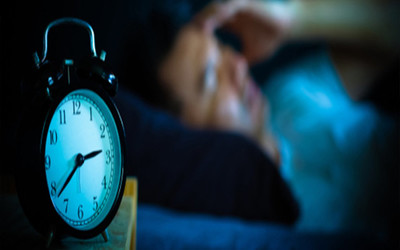According to WebMD, Insomnia is a sleep disorder characterized by difficulty falling and/or staying asleep.
[the_ad id=”6287″]
Some of the symptoms of Insomnia can be:
- Difficulty falling asleep
- Constantly waking up in the middle of the night
- Waking up too early in the mornings
- Feeling exhausted the moment you wake up in the morning
Types of Insomnia
- Primary Insomnia: Having sleep issues that are not directly associated with other health conditions or problems.
- Secondary Insomnia: Having sleep issues due to other factors like asthma, depression, arthritis, cancer. The after effects of medication or some form of substance abuse like alcohol can also cause secondary Insomnia.
Acute vs. Chronic Insomnia
Acute Insomnia refers to short term Insomnia that can come and go usually lasting from a couple of days to a week. Insomnia becomes chronic when a person has Insomnia at least 3 times a week for as long as 3 months or longer.
Causes of Insomnia
- Stress (Job stress, divorce, death of a loved one, marital problems)
- Sickness
- Emotional or physical discomfort
- Your environment (extreme heat/cold, loud noises, bright flashing lights)
- Irregular sleep cycle caused by jet lag, night shift
- Depression/Anxiety
- Substance abuse
- Nicotine
- Caffeine
- Excessive screen time
Treatment
If you suffer from acute Insomnia, you may not require treatment. Mild cases of insomnia can be resolved by practicing good sleeping habits. In worse scenarios, you can approach your local healthcare provider where they may prescribe sleeping pills for a limited time.
For chronic Insomnia cases, you must first treat any underlying health conditions that are causing Insomnia. If it persists, your local healthcare provider can suggest behavioral therapy. This therapy helps you change certain behaviors that are aggravating Insomnia and replace it with behaviors that promote good sleep. Some useful techniques can be relaxation exercises, yoga, meditation or sleep restriction therapy.
Good Sleeping Habits to Beat Insomnia
Good sleeping habits can greatly help in tackling Insomnia. Here are some tips:
- Go to sleep at the same time every night and get up at the same time every morning. Avoid napping during the day.
- Stay away from electronics and digital reading devices before bed.
- Avoid caffeine, nicotine, and alcohol. Caffeine and nicotine are stimulants that can interfere in getting some sleep. Alcohol can cause waking in the middle of the night and affects your sleep quality.
- Exercise regularly but make sure not to exercise 3-4 hours before bed.
- Always have a light dinner.
- Try reading a book or listening to music before you sleep to relax you so that it’s easier to fall asleep.
- If you cannot completely avoid coffee, tea, select intake beyond 4 pm
Source:

